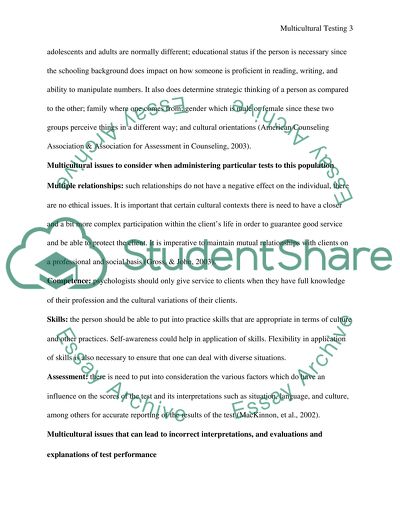Cite this document
(“Multicultural Considerations in Testing Research Paper”, n.d.)
Multicultural Considerations in Testing Research Paper. Retrieved from https://studentshare.org/psychology/1434241-multicultural-considerations-in-testing
Multicultural Considerations in Testing Research Paper. Retrieved from https://studentshare.org/psychology/1434241-multicultural-considerations-in-testing
(Multicultural Considerations in Testing Research Paper)
Multicultural Considerations in Testing Research Paper. https://studentshare.org/psychology/1434241-multicultural-considerations-in-testing.
Multicultural Considerations in Testing Research Paper. https://studentshare.org/psychology/1434241-multicultural-considerations-in-testing.
“Multicultural Considerations in Testing Research Paper”, n.d. https://studentshare.org/psychology/1434241-multicultural-considerations-in-testing.


